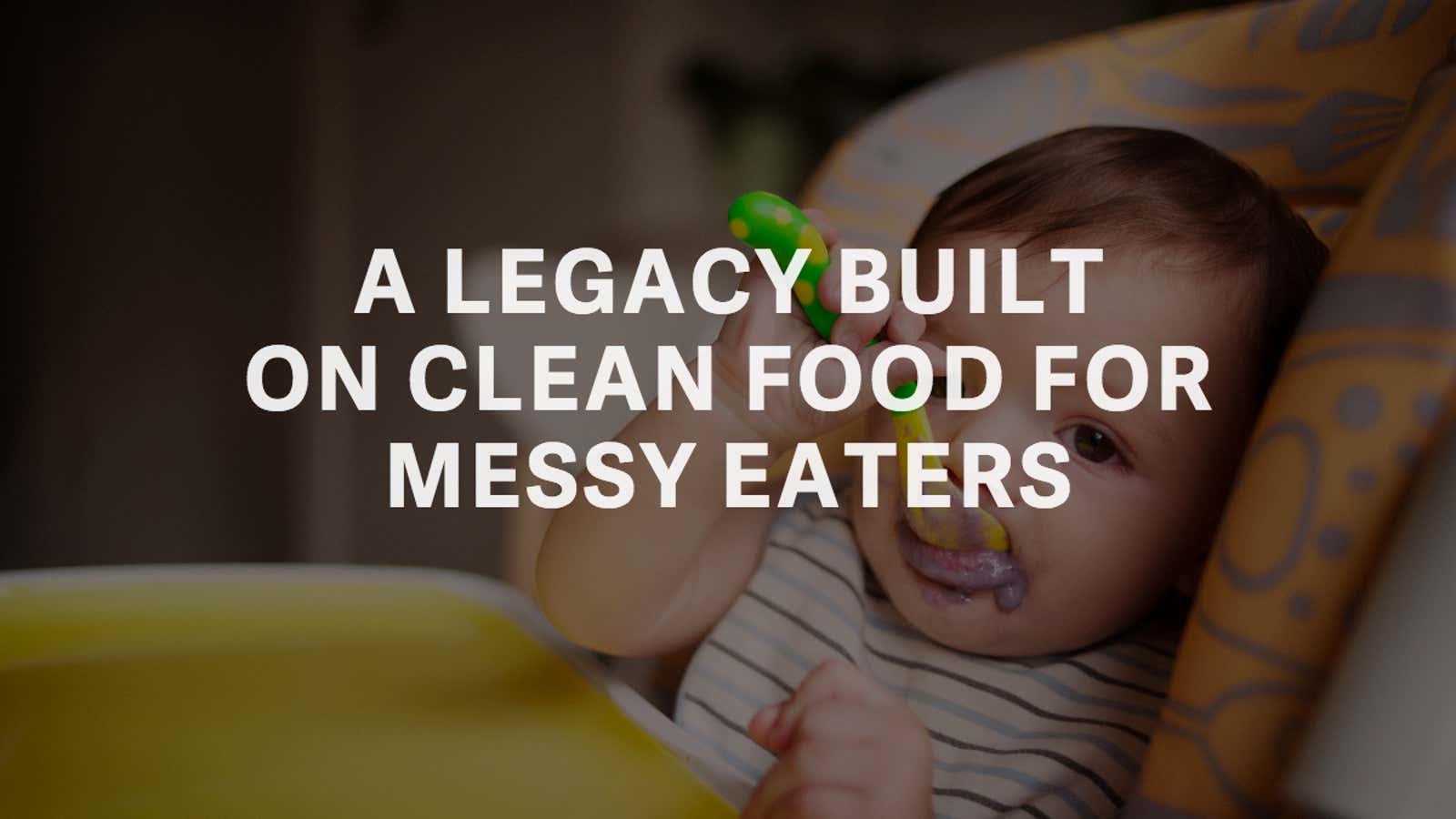Entrepreneurs often set lofty goals, including the ambition of trying to change the world. Shazi Visram, the 39-year-old CEO of Happy Family, is taking a longer view toward building her legacy. Her purpose is to fuel the next generation of young minds by ensuring they have access to the highest possible quality of baby food.
“When I started this business, my very naïve dream was to change the world with organic baby food,” Visram told Quartz. “I can’t tell you with 100% certainty that our business changes the world on a daily basis, but what I can tell you with absolute certainty is that we’re feeding the young minds that will.”
Happy Family’s premium baby food has capitalized on a rapidly expanding niche. The company grew from a business-school start-up in 2004 to an attractive candidate for acquisition; Danone purchased 92% of the company’s equity in 2013.
Of course, such growth didn’t come easy.
A tough start
Visram believed that her mission to provide a premium alternative to standard baby food was a sound one: mothers frequently expressed their guilt over failing to provide homemade meals for their babies. Yet Happy Family had to endure years of shortfalls in sales and cash flow before it landed on a model that worked.
“We, as moms, expect so much from our products, so in order to trade over to something, it not only has to be far better quality but also more convenient,” Visram says.
Visram traces her breakthrough to a European company she discovered that was selling applesauce in a pouch with a spout. She knew right away that this package would be the perfect complement to her food — easy to carry, spoonless, and something older children could use on their own. Visram poured everything into her adaptation of this design, including spending time sourcing the dominant suppliers of pouch materials and investing in a new production line. She also refused to take funding that threatened to compromise her vision, instead focusing on small investors.
“We were on the verge of running out of money,” Visram recalls.
Some fortuitous marketing and ideal timing ended up saving the day. Just as her new pouches hit the Target shelves, American Express launched a nationwide advertising campaign featuring Happy Family. Visram hadn’t realized how much of a positive impact the campaign would have: sales doubled in a year as celebrity investors like renowned chef Tom Colicchio and Demi Moore piled in.
When Visram reflects on how she was able to keep overcoming hurdle after hurdle, to trust in her vision despite every challenge, her parents loom large.
“I think immigrants are the best mentors for entrepreneurs that you can possibly have,” she says. “Immigrants are the ultimate entrepreneurs.”
Building a legacy
The legacy Visram hopes to create can be traced back to something she witnessed at just 3 years old, when her 40-year-old Tanzanian father, who barely spoke English, moved the family to the US. Her parents ultimately overcame deep poverty to start a motel in Alabama, the beginning of a network of motels as well as other successful ventures.
“I feel a sense of obligation to my parents for having taken those risks for me,” says Visram, who was named an EY Entrepreneur Of The YearTM winner in the US in 2011 in recognition of her accomplishments. “I feel like it’s my duty, in a way, to continue to pay that forward.”
Happy Family’s social mission extends to substantial work with children and future entrepreneurs, including Visram’s personal involvement in the Network for Teaching Entrepreneurship and Rising Tide Capital. The company’s new Happy to Help project is also beginning to award grants that support community projects for children nationwide.
Happy Family is continuing to evolve into the type of company Visram always hoped it would be. Careful to not let acquisitions or hurdles dampen her vision, Visram is constantly ensuring she’s leaving a positive legacy for her children and the next generation. “A lot of underprivileged kids today have all the tools within them that I had. They just need to have their confidence unlocked.”
EY’s Better Questions series asks some of the tough questions faced by today’s global businesses. Better questions. Better answers. Better working world. Discover more
. #BetterQuestions
This article was produced on behalf of EY by Quartz creative services and not by the Quartz editorial staff.
